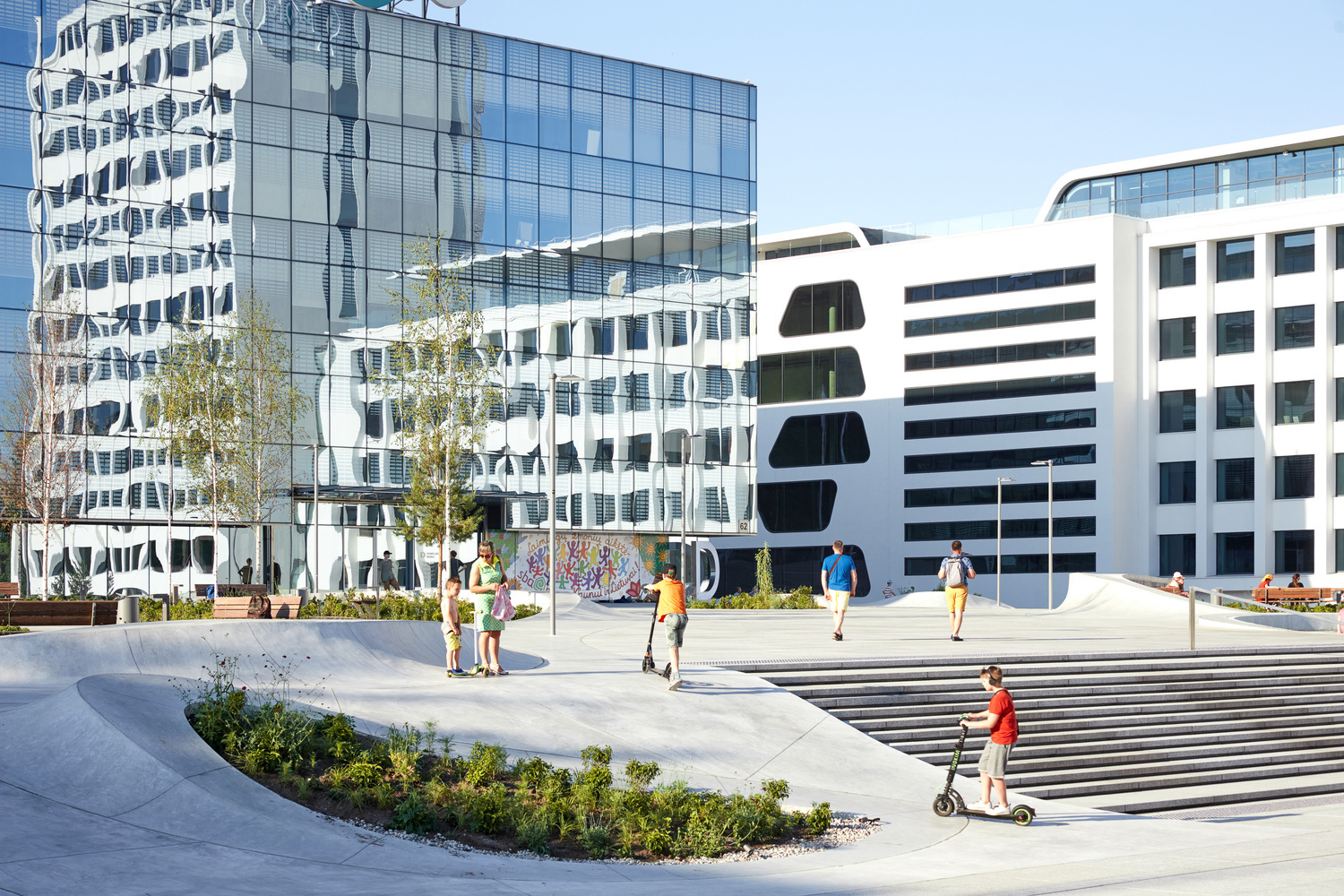
"For over a century and a half, corporations have periodically taken on the role of city builders. Neighborhoods or even entire settlements that exist at the intersection of commerce and civic life, "company towns" are recurring urban types. The corporate city has long reshaped itself to match the spirit of each era, whether through the pastoral idealism of industrial England or the cinematic optimism of mid-century America. In its latest guise, the mixed-income campus district, architecture becomes a language of belonging, branding, and quiet persuasion."
"The corporate city can be understood through three distinct types - the productive company town anchored in industrial labor and welfare, the performative one staged around experience and brand narrative, and the redemptive model cast as an answer to urban housing crises. While their social contexts and stated purposes differ dramatically, all three share a common thread. Urban planning and architecture become the medium through which corporations imagine their relationship to the community."
Corporations have periodically assumed roles as city builders for over 150 years. Neighborhoods and settlements have existed at the intersection of commerce and civic life as company towns. The corporate city has adapted to different eras, including the pastoral idealism of industrial England and the cinematic optimism of mid-century America, and now appears as mixed-income campus districts. Architecture functions as a language of belonging, branding, and quiet persuasion. Corporate cities manifest in three types: productive (anchored in industrial labor and welfare), performative (staged around experience and brand narrative), and redemptive (cast as answers to urban housing crises). Urban planning and architecture serve as the medium through which corporations imagine and enact relationships with communities.
Read at ArchDaily
Unable to calculate read time
Collection
[
|
...
]